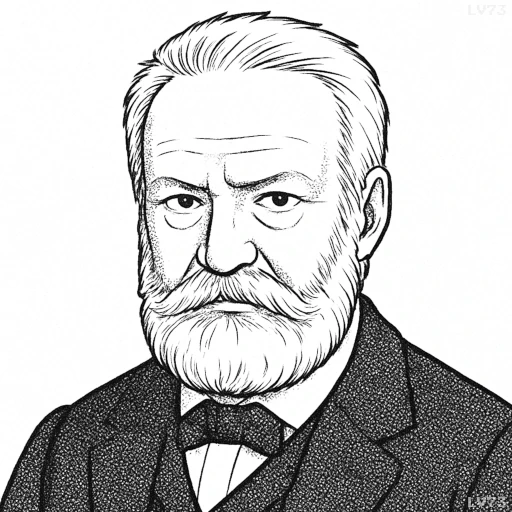“I would have liked to be – indeed, I should have been – a second Rembrandt.”

- February 26, 1802 – May 22, 1885
- Born in France
- Author, poet, playwright
table of contents
Quote
“I would have liked to be – indeed, I should have been – a second Rembrandt.”
Explanation
In this quote, Victor Hugo reflects on his personal ambitions and desires to be a great artist—specifically, he expresses a longing to have achieved the level of mastery and recognition of the famed Dutch painter Rembrandt. Hugo’s words suggest a recognition of his own potential and an unfulfilled aspiration to reach the same artistic greatness. By stating “I should have been,” Hugo expresses not only his desire but also a sense of regret or lament over the fact that he did not fulfill this artistic potential.
Hugo’s desire to be a “second Rembrandt” highlights his admiration for Rembrandt’s genius—not just his skill with a brush, but his ability to capture human nature and emotion so profoundly. The statement reflects a yearning for artistic expression and a sense that he, too, could have created works with such impact and depth.
In modern terms, this quote speaks to the universal human experience of ambition and regret—the longing to achieve greatness or recognition in a field we care about. It reflects the tension between potential and reality, and the idea that even those who achieve great things may feel that they have not fully reached the heights they aspired to. It also reminds us of the power of artistic legacy and how deeply individuals can be influenced by the masters who came before them, while still grappling with their own unrealized dreams.
Would you like to share your impressions or related stories about this quote in the comments section?

